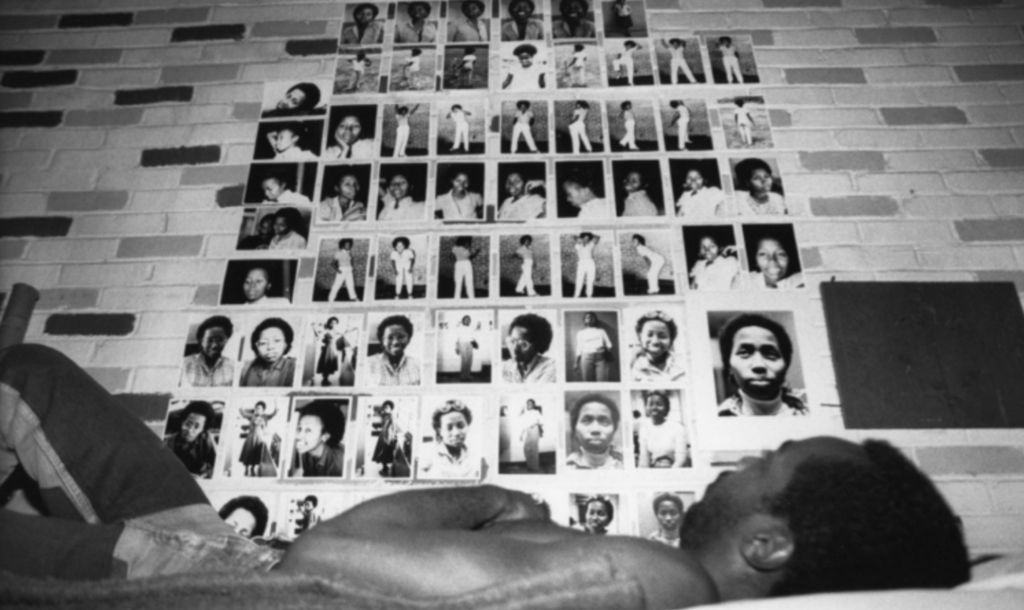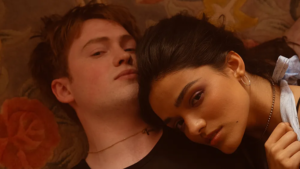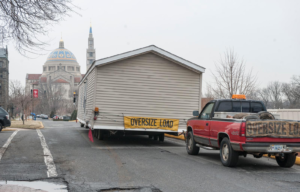A Story of Hope, Transformation, and Redemption: In Lorton’s Darkroom

Courtesy of the Department of Art & the Department of Media Studies and Communications
By Felipe D. Avila
After the initial launch of the Lorton: Paper & Lens exhibition, the Department of Art, in collaboration with the Department of Media Studies, hosted a film screening of the acclaimed documentary short, In Lorton’s Darkroom (2016).
This event, held in the Della Ratta Auditorium at the Busch School of Business earlier this month, was an excellent addition to the ongoing exhibition. Those in attendance at the screening include former inmates featured in the documentary, students, faculty, staff, and members of the community.
The documentary followed the life of inmates in the Lorton Penitentiary several decades ago. The Lorton Correctional Complex was established in 1910 as a center for nonviolent inmates serving short sentences. Michael Moses El and Bernard Seaborn were among the former inmates in attendance who participated in a prison-sponsored photography course throughout the 1980s.
Freelance photographer, Karen Ruckman, was invited to teach prisoners at Lorton fundamental photography skills in 1981. She successfully led the course for nearly a decade, transforming the lives of countless men. Bernard Seaborn spoke highly of Ruckman, claiming that all inmates respected her.
(First inaugural class in 1981. Ms. Ruckman shown in center-left)
Courtesy of Prison Photography
The event consisted of a film screening during the first half of the function, followed by a Q&A panel comprised of producers, interviewees, and Ruckman herself. The forum reflected on the project inspired by real events forty-one years ago. It was revealed by a panelist that the project was infused with new life when old, recorded footage from the photography initiative was located in an archive.
When asked how his life would’ve been different without the program, Seaborn bluntly stated, “You wouldn’t want to sit with me in this room had I not joined the program.”
El, now sixty-eight, argues that the photography course “created that excellence in me.” Throughout the panel discussion, it was evident that the photography course was a lifeline for many incarcerated men. The panelists discussed how the trust placed in them compelled them to become a better version of who they once were.
El claimed that he had two motivations throughout his time in prison: “to get out… then [the] second goal was to stay out.” He believes that the photography program gifted him with an opportunity to discover his purpose.
“I realized that I really loved it [photography]. It was a way for me to express myself,” said Seaborn. He argued that the program prevented him from “doing bad things” by serving as a creative outlet for self-expression.
Walter Ridley, one of the interviewees in the documentary, served as the Director of Corrections in Washington, D.C. throughout Lorton’s existence. Ridley informed audiences that “Lorton was 99.9% black. I think there was some racism involved,” in response to the high incarceration rates among African Americans at the time.
The Department of Art organized an art gallery exhibit titled Lorton: Paper & Lens to supplement the film in Salve Regina Hall. The display included artwork from two carceral art programs: the Lorton Photography Workshop and The Lorton Art Program. Professor Tiffany Hunt, an art history instructor at the university, curated the exhibit. The Lorton Art Program is actively offered in several Washington, D.C. correctional facilities.
Ruckman’s program ended in 1989 due to a lack of funding, nearly ten years after its inception. The prison complex subsequently closed its doors in 2001 following a turbulent struggle with financing. The penitentiary was repurposed to serve the local community, and it now coincidentally operates as a cultural arts center. For Michael and Bernard, the building remains a powerful symbol of how their life has changed thanks to the power of a community, camera, and a gracious young instructor. Just as the art building has found a new purpose, so have the graduates of Lorton’s critically acclaimed photography program.
The short film is available for viewing on https://vimeo.com/ondemand/inlortonsdarkroom for a small fee.







